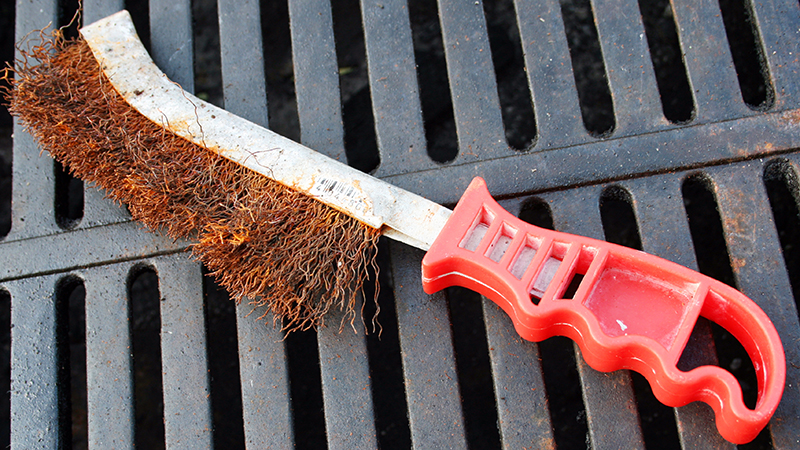
Wire-bristle grill brushes are used frequently for cleaning food residue from grill grates, but loose bristles can fall off the brush during cleaning and end up in the grilled food. If consumed, wire bristles can lead to injuries in the mouth, throat and tonsils. An otolaryngologist at MU Health Care would like to remind the public that these injuries can be prevented.

“While injuries from these brushes occur throughout the year, they are more prominent in summer months,” said David Chang, MD, associate professor of otolaryngology at the MU School of Medicine. “Physicians, consumers and product manufacturers need to be aware of the dangers of wire-bristle grill brushes to promote safety.”
Chang recommends the following tips for individuals this grilling season:
- Use caution when cleaning grills with wire-bristle brushes, examining brushes before each use and discarding if bristles are loose.
- Inspect your grill’s cooking grates before cooking, or use alternative cleaning methods such as nylon-bristle brushes or balls of tin foil.
- Inspect grilled food carefully after cooking to make sure bristles are not stuck to the food.
Chang previously led a research study where he identified more than 1,600 injuries from wire-bristle grill brushes reported in emergency rooms from 2002 to 2014.
“One little bristle unrecognized could get lodged in various areas of the body, whether in the throat, tonsil or neck region,” Chang said. “If the bristle passes through those regions without lodging itself, it could get stuck further downstream in places like the esophagus, stomach or the intestine. The biggest worry is that it will lodge into those areas and get stuck in the wall of the intestine. The bristles could migrate out of the intestine and cause further internal damage.”
Chang said that if cautionary measures fail and individuals do experience problems with swallowing or pain after eating food that has been barbecued or grilled, they should seek advice from a physician or an emergency department and let the physician know that they came from a barbecue event or they just grilled food.
Chang’s study, “Epidemiology of Wire-Bristle Grill Brush Injury in the United States, 2002-2014,” was published in Otolaryngology-Head and Neck Surgery.





